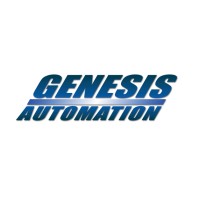
Genesis Automation, LLC
Genesis Automation is a single source, full service automated system solutions provider. We design and build custom assembly, special process, and test equipment for a wide range of industries. Genesis applies proven design concepts, technologies and processes to achieve successful completion of your project’s requirements. Where proven solutions do not exist, Genesis will develop them. Genesis Automation has been built upon the philosophy of being the best at what we do, not necessarily the biggest.






